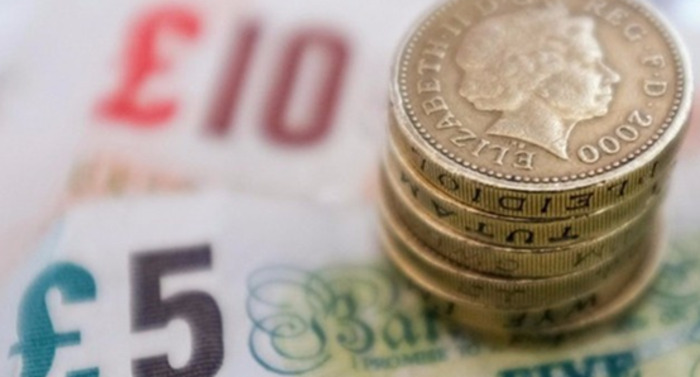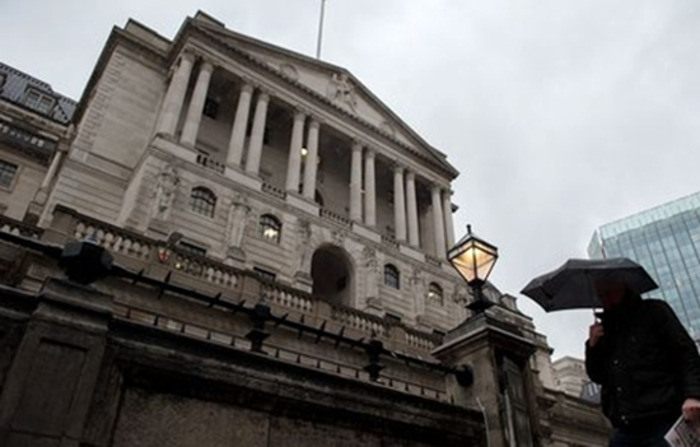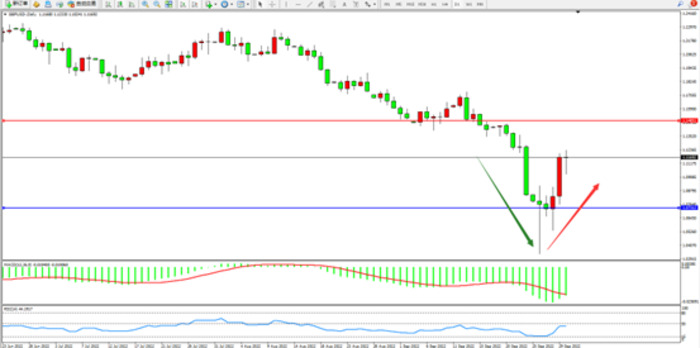The Bank of England intervenes in the market, the pound and the United States rebound from low shocks
 2022-10-03
2022-10-03
 1368
1368
Sterling climbed volatile against the dollar this week, supported by a fall in the dollar, and the Bank of England intervened in the market to support the pound. Inflation in the UK hit a record high in 40 years. In order to curb high inflation, the Bank of England announced on September 22 that it would raise the benchmark interest rate from 1.75% to 2.25%. This is the seventh time since December last year that the Bank of England has raised interest rates.
The US Commodity Futures Trading Commission CFTC foreign exchange business position report shows that as of the week of 2022-09-27 (hand) GBP long positions decreased by 2,102 to 195,244; the Bank of England's bailout temporarily eased the yields of British, American and other global government bonds. Upward pressure and sentiment can also be a means to stop the dollar index from rising in stages.

The Bank of England bought British government bonds for the second day in a row to stabilize financial markets. Sterling posted its biggest one-day percentage gain since March 2020. The Bank of England bought 1.415 billion pounds ($1.55 billion) of British government bonds with maturities of more than 20 years on Thursday, two days into a multibillion-pound program aimed at stabilizing markets. Some pointed out that the rise in sterling brought about by the Bank of England's actions was unsustainable. Anytime the central bank plans to interim intervention, the market will definitely test this to see if the central bank will continue to do so. Once the central bank stops, economic fundamentals will continue to dominate the currency exchange rate trend.
Credit Suisse economist Sonali Punhani said: "We expect the Bank of England to raise interest rates significantly in early 2023, from 2.25% to 4.5%, and turn hawkish in November." In a positive response, the confidence issues the UK is currently facing could worsen and could lead to further sterling weakness, higher inflation, higher risk premia and terminal interest rates.
Investors, concerned about the trajectory of Britain's public finances, sold bonds, raising the yields they pay, pushing up mortgage rates and the cost of other forms of business and personal financing. The Bank of England has yet to respond aggressively to this fiscal package by raising interest rates. Britain's large fiscal deficit, as well as its large current account deficit (8% of GDP), requires capital inflows to finance it.
The UK tax cut policy has caused market volatility and doubts. British Chancellor of the Exchequer Quasi Kwarten announced on September 23 the country's largest tax cut in 50 years to boost the economy. On the 25th, Kwoten said that the government has planned to reduce the basic tax rate of personal income tax, and more relevant measures will be introduced in the future. This statement intensified market panic.

The Bank of England issued a statement on the 28th that it would temporarily purchase long-term British government bonds "at any necessary scale" to restore market order, and British government bonds rose across the board. The Bank of England will purchase British government bonds with a remaining maturity of more than 20 years in the secondary market. The bond purchase period will last from September 28 to October 14. Once the risk of market operation is judged to have subsided, the Bank of England will be stable and stable. Exit bond purchases in an orderly manner. The Bank of England also emphasized that the quantitative tightening plan to reduce its holdings of British government bonds by 80 billion pounds per year remains unchanged, but the British government bond sales plan originally scheduled to start next week will be postponed to October 31.
The International Monetary Fund (IMF) on the 27th publicly criticized the British tax cut policy, saying that the relevant policy may "intensify injustice" and increase the pressure on prices. A spokesman for the organization said in a statement that, given rising inflationary pressures in many countries, including the United Kingdom, a large-scale and untargeted fiscal plan is not recommended at this juncture, and fiscal policy cannot be at odds with the purpose of monetary policy.
In response to external doubts, British Prime Minister Elizabeth Truss responded publicly for the first time on the 29th, saying that the recent fiscal plan is the right choice, and the British government must take decisive action to promote economic development and curb inflation. Truss said budget proposals were often contested, but the government needed to act fast to avoid an expected recession, was using a variety of tools to boost growth and worked closely with the Bank of England on fiscal planning.
GBP/USD daily candlestick chart
The bearish sentiment in the market is shrouded in the market. After a short-term decline, it showed a V-shaped reversal trend and pulled up strongly, but it was still oscillating at the bottom area. The top suppressing concern was around 1.14851, and the low support was around 1.07312. In the bearish area, it continues to oscillate upward to hover below the 50 equilibrium line, as shown in the figure:

[Disclaimer] This article only represents the author's own views, and remains neutral with respect to the statements and opinions in the article, and does not provide any express or implied guarantee for the accuracy, reliability or completeness of the content, and does not constitute any investment advice. Please read For informational purposes only, and at your own risk and responsibility.
The above information is provided by special analysts and is for reference only. CM Trade does not guarantee the accuracy, timeliness and completeness of the information content, so you should not place too much reliance on the information provided. CM Trade is not a company that provides financial advice, and only provides services of the nature of execution of orders. Readers are advised to seek relevant investment advice on their own. Please see our full disclaimer.

CM Trade
As a world leading financial trading platform, CMtrade Provides comprehensive one-stop trading services and opportunities for traders.
[Products]
The platform provides over 32 kinds of popular financial products such as forex, precious metals, crude oil, indices, cryptocurrencies and more.
[System]
2 top trading systems CM Trade MT4 / CM Trade APP, powerful and easy to operate
[Service]
Comprehensive market news, professional market analysis, 7*24 hours online customer service
[Advantage]
Low cost, high leverage, flexible one-stop all day two-way trading.
[Authority]
Licensed and strictly regulated by authorities. Traders deposits are independently kept by the bank. Fast deposit and withdrawal. Fair, efficient and transparent trading environment.
CM Trade Mobile Application
Economics Calendar
MoreYou May Also Like



 简体中文
简体中文
 ภาษาไทย
ภาษาไทย
 繁體中文
繁體中文
 Indonesia
Indonesia











